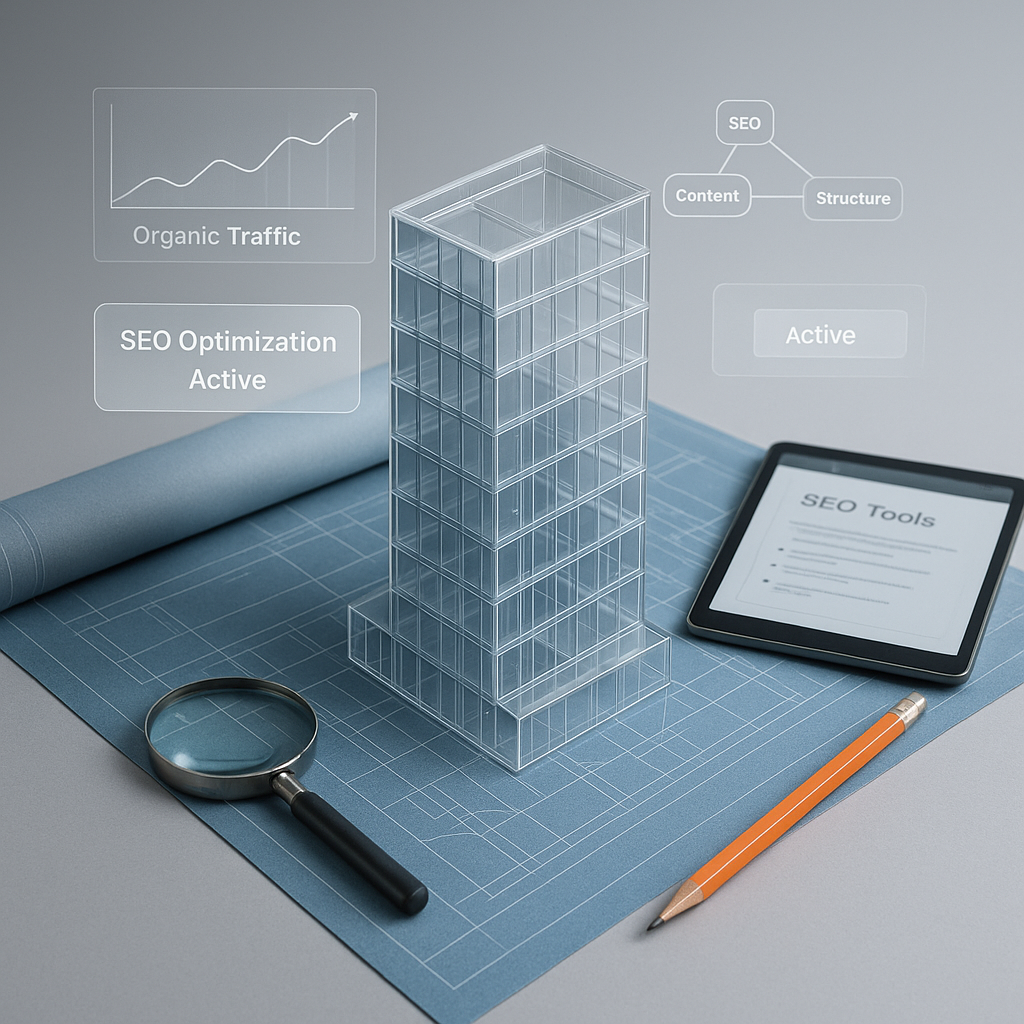How to Choose the Right HubSpot Website Design Agency for Your Business Goals
Your website drives your first impressions, your lead quality, and your sales pipeline. So why do so many businesses still treat it like a secondary...
%20(23).png?width=302&height=302&name=_SD%20web%20assets%202025%20(500%20x%20500%20px)%20(23).png)
10 min read
Eric Smith
:
Updated on November 19, 2025
Choosing between HubSpot CMS and WordPress is one of the most important decisions businesses face when building a website. WordPress is the world’s most popular open-source platform, powering over 40% of all sites, while HubSpot CMS Hub is a newer but rapidly growing system designed to integrate seamlessly with marketing, sales, and CRM tools.
Both platforms offer strong functionality but cater to different needs: WordPress provides unlimited flexibility with themes and plugins, while HubSpot CMS offers a tightly integrated marketing ecosystem with built-in SEO, CRM, and analytics. In this article, we’ll explore WordPress vs HubSpot CMS in terms of customization, SEO, CRM, analytics, integrations, plugins, community, and long-term business impact.
By the end, you’ll have a clear framework to decide whether HubSpot or WordPress is the right CMS for your business.
 When comparing WordPress vs HubSpot, the first distinction lies in how each platform is built. WordPress is an open-source platform, meaning anyone can use, modify, and extend it. This flexibility is why WordPress is one of the most widely adopted systems globally. In fact, WordPress powers 43.2% of all websites on the internet (W3Techs). You can host a WordPress website anywhere, use thousands of themes and plugins, and hire a WordPress developer to customize almost every detail.
When comparing WordPress vs HubSpot, the first distinction lies in how each platform is built. WordPress is an open-source platform, meaning anyone can use, modify, and extend it. This flexibility is why WordPress is one of the most widely adopted systems globally. In fact, WordPress powers 43.2% of all websites on the internet (W3Techs). You can host a WordPress website anywhere, use thousands of themes and plugins, and hire a WordPress developer to customize almost every detail.
HubSpot CMS, by contrast, is a hosted content management system designed to work as part of the broader HubSpot ecosystem. HubSpot provides everything in one place: the CMS, HubSpot CRM, analytics, and inbound marketing tools. Unlike WordPress, HubSpot doesn’t rely on third-party plugins for core functionality. Instead, HubSpot CMS provides built-in SEO tools, drag-and-drop editing, and integration with marketing automation out of the box.
The choice between HubSpot CMS and WordPress often comes down to priorities. If you need maximum flexibility, low entry cost, and don’t mind managing hosting and security, WordPress offers an unmatched range of options. But if you want a secure CMS that integrates natively with a CRM platform and marketing strategies, HubSpot may be the better fit.
Takeaway: WordPress offers more control and flexibility, but HubSpot CMS delivers a unified, hosted platform with built-in CRM, SEO, and security — ideal for businesses focused on growth, not tech overhead.
Both HubSpot and WordPress leverage themes to accelerate website deployment and simplify content management — but their approaches to customization are fundamentally different.
WordPress offers a vast library of themes, ranging from free options to complex premium frameworks. These can be used out of the box or extended using page builders like Elementor or Divi. WordPress’s open-source flexibility allows developers to fully customize the code, templates, and functionality behind each theme. For businesses with strong in-house development teams, this level of control is a key advantage.
HubSpot CMS, by contrast, uses a modular theme-based system that prioritizes consistency, ease of use, and speed. Themes in HubSpot include global modules, drag-and-drop layout editing, and built-in responsiveness — all designed to help marketers launch pages quickly without relying on developers. While technically less open-ended than WordPress, HubSpot’s theme structure is more scalable for marketing teams that prioritize agility and brand consistency.
At SmithDigital, we specialize in building sites with the Clean Theme for HubSpot, one of the most popular and conversion-focused themes in the ecosystem. As one of Clean’s leading deployment partners, we help brands get to market faster with high-performing designs that are easy to manage and easy to scale. If you’re exploring a HubSpot CMS deployment, our Clean Theme Web Design Services are purpose-built to help you launch quickly — without sacrificing performance or polish.
Whether you prioritize full-code flexibility or marketing team independence, both platforms provide strong theming capabilities. The key difference lies in how each system balances customization with usability — and which approach better supports your content, team, and growth strategy.
Pro Tip: If you need full-code control, WordPress is the better fit. But for teams prioritizing speed, consistency, and ease of use, HubSpot’s theme system — especially when paired with Clean Theme — is the more efficient choice.
For most businesses, the CMS decision hinges heavily on marketing outcomes. In this area, HubSpot CMS offers a distinct advantage by bundling built-in SEO tools, content strategy recommendations, and analytics directly within the platform. Beyond keyword suggestions and page-level optimization tips, HubSpot’s SEO Recommendations tool audits the entire site for issues like missing metadata, broken links, and slow-loading pages. Canonical tags and meta robots can be set directly within the page editor, while automatic XML sitemaps and a global CDN simplify indexation and performance management. Because these features are natively integrated with HubSpot’s CRM and automation tools, aligning SEO with lead generation campaigns is almost frictionless.
WordPress, meanwhile, relies on plugins such as Yoast or Rank Math to deliver comparable functionality. These plugins go deeper than HubSpot in some respects—for instance, Yoast automatically generates a complete schema graph (Organization, WebSite, Article, Breadcrumb) and provides granular control over canonicals, hreflang, and robots directives. However, they are third-party solutions that must be configured and maintained. WordPress core includes basic XML sitemaps, but most site owners still depend on plugins to handle metadata, structured data, redirects, and advanced sitemap management. This creates flexibility for developers but adds complexity for marketers who prefer a turnkey setup.
Where HubSpot shines is in governance and migrations. Redirects can be managed through a built-in interface with support for bulk imports and pattern rules, reducing the risk of broken links during a replatform or IA change. WordPress offers powerful redirect management as well, but it usually requires plugins or server-level configuration, increasing the chance of missteps without strong technical oversight.
Performance is another critical ranking factor. Google’s Core Web Vitals—especially Largest Contentful Paint (LCP) and Cumulative Layout Shift (CLS)—remain central to rankings in 2025. HubSpot optimizes this automatically with built-in hosting, SSL, caching, and even prerendering of pages to speed up delivery across its global CDN. WordPress performance is less predictable: with enterprise-grade hosting, a CDN, image optimization, and careful theme/plugin selection, WordPress sites can be equally fast. But without those guardrails, performance can degrade quickly, hurting rankings.
Finally, for international SEO, HubSpot includes multilingual content variations that automatically generate hreflang tags and clean language-specific URLs. WordPress can achieve the same results with WPML or Polylang, but those add-ons introduce more complexity and performance considerations.
Pro Tip: For predictable performance and easier technical SEO management, HubSpot’s native hosting, CDN, and optimization tools offer a major advantage. WordPress can match these results, but only with the right hosting, theme, and plugin stack — and that requires ongoing oversight.
One of the most significant developments shaping the CMS landscape in 2025 is the evolution of AI-powered content and automation tools. HubSpot has aggressively expanded its native AI suite, making it far more than just a CMS. Today, HubSpot CMS offers AI capabilities that power nearly every stage of content creation and optimization, including:
This means marketing teams can not only generate content faster but also remix it for different formats, manage
multiple languages, and narrate blog posts without third-party tools or dev support. These tools are embedded directly in HubSpot’s ecosystem — ensuring everything ties back to CRM data, analytics, and personalization.
WordPress, by comparison, does not include native AI functionality. Users must rely on third-party plugins for content generation, SEO assistance, or translations — and these vary widely in quality, reliability, and compatibility. Managing multiple plugins for each function adds both complexity and risk.
In short, HubSpot CMS delivers a complete AI marketing engine, while WordPress remains dependent on an external ecosystem that requires more technical management and lacks cohesion.
Key Insight: HubSpot clearly leads in AI. With built-in tools for content generation, personalization, and translation, it eliminates the need for third-party plugins and manual workflows.
When evaluating HubSpot vs WordPress CMS, CRM and analytics are major differentiators. HubSpot CMS connects natively to the HubSpot CRM platform, providing unified data on website visitors, leads, and customer journeys. This integration with HubSpot CRM allows marketers to personalize content, trigger automated campaigns, and view detailed analytics from one dashboard.
WordPress, by contrast, does not have a built-in CRM. Instead, WordPress users must integrate with external CRM systems, whether HubSpot CRM, Salesforce, Zoho, or others. While integrations are possible, they often require plugins or third-party connectors, which add complexity.
Analytics follows a similar pattern. HubSpot provides robust built-in analytics for page performance, conversions, and campaigns. WordPress requires integration with Google Analytics or other tools, which works well but requires setup and maintenance. For businesses that prioritize simplicity and centralized reporting, HubSpot CMS provides a more complete experience out of the box.
Takeaway: HubSpot wins on simplicity and integration. Everything from lead tracking to campaign analytics is centralized. WordPress requires external tools and manual connections to achieve similar results.
At its core, a CMS platform needs to deliver strong functionality for content creation and management. WordPress is one of the most flexible CMS platforms available, offering thousands of themes and plugins, and enabling developers to create custom features. WordPress provides blogging, e-commerce via WooCommerce, membership systems, and more through third-party extensions.
HubSpot CMS offers a different model. While it doesn’t have the same breadth of third-party plugins, HubSpot CMS offers a drag-and-drop editor, built-in SEO, content staging, and adaptive testing as part of its functionality. HubSpot CMS takes complexity out of managing updates, security plugins, and hosting. Since HubSpot provides the entire infrastructure, businesses don’t need to worry about WordPress installation, hosting, or third-party maintenance.
Security is another area where HubSpot CMS provides peace of mind. HubSpot handles updates, SSL, and monitoring as part of its SaaS infrastructure. WordPress requires security plugins and ongoing patching, as its popularity makes it one of the most targeted platforms for attacks. Businesses without dedicated technical support often find HubSpot’s managed security a safer long-term option.
For developers, WordPress gives almost unlimited control, but it comes with responsibility. A WordPress site requires ongoing updates, security monitoring, and sometimes developer intervention. HubSpot CMS provides a secure CMS experience for businesses that want marketing teams to focus on growth without managing technical overhead.
Recommendation: WordPress offers more customization at the developer level, but HubSpot delivers a more secure, scalable experience with less maintenance — especially for non-technical teams.
The plugin ecosystem is where WordPress shines. A WordPress plugin can add nearly any feature imaginable—e-commerce, membership portals, advanced forms, SEO optimization, or even full CRM integrations. WordPress plugins like WooCommerce, Gravity Forms, and SEO tools extend WordPress far beyond a basic blogging platform. However, relying on plugins can also introduce maintenance challenges, compatibility issues, and security risks if plugins are not updated regularly.
HubSpot doesn’t rely on plugins in the same way. Instead, HubSpot offers built-in tools such as HubSpot forms, landing pages, and lead capture modules that integrate directly with HubSpot CRM. While the HubSpot ecosystem is more limited than the WordPress plugins library, the advantage is consistency. HubSpot tools are updated and supported within the HubSpot CMS Hub, eliminating the need for security plugins or third-party patches.
If your business requires specialized features or wants to create custom applications, WordPress plugins provide unmatched flexibility. But if you prefer reliability and integration without managing third-party dependencies, HubSpot CMS provides a streamlined approach.
Pro Tip: WordPress gives you endless flexibility through plugins — but it comes with added complexity and risk. HubSpot favors consistency, with everything built-in and supported under one platform.
Modern businesses rely on dozens of tools—CRM platforms, email automation, social media, payment processors, and more. Integration is therefore essential when comparing HubSpot and WordPress.
WordPress supports thousands of third-party integrations through plugins and APIs. You can integrate a WordPress website with nearly any system, from HubSpot with WordPress to Shopify, Mailchimp, or Salesforce. Developers can create custom integrations, giving WordPress unmatched flexibility as an integration-friendly platform. However, managing multiple third-party integrations requires oversight to prevent conflicts or downtime.
HubSpot CMS integrates seamlessly with the HubSpot ecosystem and offers pre-built connectors for many major platforms. Integration with HubSpot CRM is native, meaning no setup is required. However, integration options outside the HubSpot ecosystem may be more limited compared to WordPress. HubSpot may not offer every niche integration without custom development or third-party middleware.
Ultimately, if you want guaranteed compatibility with HubSpot tools and CRM, HubSpot CMS provides the cleanest solution. But if your organization has a diverse tech stack requiring dozens of third-party integrations, WordPress may be the more flexible CMS software.
Verdict: Choose WordPress if you have a complex tech stack with many niche tools. Choose HubSpot if you prefer pre-built integrations, especially within the HubSpot ecosystem.
The strength of a CMS is often reflected in its community and developer ecosystem. WordPress is one of the largest open-source communities in the world. There are thousands of developers, agencies, and freelancers specializing in WordPress development. WordPress community support is unmatched, with forums, documentation, and WordCamps around the world. If you need a WordPress developer, you’ll have no shortage of options.
HubSpot, on the other hand, has a growing but smaller community. HubSpot developers specialize in the HubSpot CMS Hub, and HubSpot provides structured resources like HubSpot Academy for training. The benefit of HubSpot is direct access to HubSpot support and a curated developer marketplace. However, the cost of hiring a HubSpot developer may be higher compared to WordPress, simply due to supply and demand.
If you value a global open-source platform with thousands of free plugins and basic WordPress themes to choose from, WordPress is one of the best options. But if you prefer structured training, premium support, and an ecosystem that HubSpot provides directly, HubSpot CMS may be more appealing.
Takeaway: WordPress has the larger open-source community and more developer talent. But HubSpot offers direct support, structured learning, and less day-to-day management.
When it comes to choosing the right CMS, the decision between WordPress and HubSpot CMS depends on your priorities. WordPress is free, flexible, and supported by thousands of themes and plugins. It allows you to create custom websites and integrate with nearly any system. However, WordPress requires hosting, security plugins, ongoing maintenance, and often a developer to manage updates and customization.
HubSpot CMS, by contrast, offers an all-in-one experience. HubSpot CMS provides hosting, security, built-in SEO, HubSpot CRM, and analytics out of the box. Unlike WordPress, HubSpot doesn’t rely heavily on third-party tools. The trade-off is less customization flexibility and a higher price point, but HubSpot takes care of technical details so marketers can focus on inbound marketing and growth.
The decision is also shaped by the industry at large: the global CMS market is projected to reach $123.5 billion by 2026 (MarketsandMarkets). With such rapid growth, businesses are evaluating their CMS choices not only for current needs but also for long-term scalability.
The choice between HubSpot CMS and WordPress should be based on your team’s capabilities. If you have strong technical resources and want a fully flexible CMS, use WordPress. If you want an integrated CRM platform with marketing tools included, use HubSpot CMS.
Summary: WordPress is best for teams with technical capabilities and complex requirements. HubSpot is best for growth-focused businesses that want everything — content, CRM, SEO, and automation — in one place.
WordPress and HubSpot CMS both deliver powerful website management, but they serve different business needs. WordPress is one of the most flexible CMS platforms, supported by thousands of developers and plugins, making it ideal for businesses that need custom functionality and control. HubSpot CMS offers a secure CMS that integrates directly with HubSpot CRM and marketing tools, making it ideal for organizations that prioritize inbound marketing and want an all-in-one platform.
What’s different in 2025 is how much AI, automation, and performance shape the CMS decision. HubSpot CMS now includes built-in AI for content creation, personalization, and optimization—capabilities that can transform how businesses approach inbound marketing. WordPress can achieve similar results, but only with the right mix of plugins, hosting, and developer expertise. Performance and security also remain central: HubSpot manages these automatically, while WordPress requires ongoing monitoring and updates to stay competitive.
According to a 2025 G2-based buyer comparison, companies that migrated from WordPress to HubSpot CMS reported a 110% increase in web traffic, a 65% increase in inbound leads, and a 15% increase in deals generated within six months. These gains reflect how platform choice directly impacts business performance, not just web design.
Ultimately, the decision comes down to priorities. If your organization values flexibility, independence, and full control, WordPress is one of the strongest open-source platforms available. If you want a future-ready system that combines content, CRM, SEO, AI, and marketing automation in one platform, HubSpot CMS offers a streamlined path.
Both platforms can power a successful website in 2025, but aligning your CMS choice with your growth strategy, technical resources, and marketing goals will ensure you choose the right platform for the years ahead.

Your website drives your first impressions, your lead quality, and your sales pipeline. So why do so many businesses still treat it like a secondary...

7 min read
Running SEO for a site that still struggles to rank, even with consistent content and solid backlinks? You might be dealing with a design...

6 min read
Your website is the centerpiece of your marketing engine. For business owners and marketing managers using HubSpot, it’s not just about having...